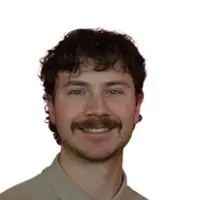
Jace Addy
What is your major? Environmental engineering with certificates in sustainability and leadership
Expected graduation: May 2025
What inspired your interest in the environment and/or community? My passion for the environment stems from my love for the great outdoors. I engage in outdoor activities such as backpacking and canoeing and was disheartened to learn that these natural wonders were being harmed by human actions. As a child, I recall being warned that the impacts of climate change were reaching a point of no return and that scared me. Upon realizing that we had surpassed this point at an alarming rate, I made a commitment to increase my involvement in environmental initiatives that focus on community engagement. My main focus is youth education, as I believe that instilling sustainable practices at a young age will help shift society’s perspective towards a more sustainable lifestyle.
What would you say to other students who ask about CESP or the Nelson Institute? CESP is an amazing program for building community on campus and learning how to make effective change in the realm of sustainability. Also, the Nelson Institute is much different from other colleges on campus because there is a layer of care for students that other colleges do not offer.
Something few people know about you: I played the Tin Man in high school and learned how to tap dance for my part.
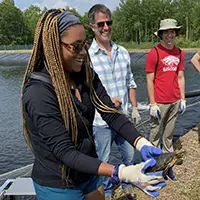
Kira Adkins
What is your major? Legal studies and environmental studies with a certificate in American Indian and Indigenous studies and leadership
Expected graduation: May 2025
What inspired your interest in the environment and/or community? My passion for the environment came from my inner-city tribal community. I had grown up enjoying just being outside, spending time with my non-familial relatives. I take a lot of pride in my relationship with the earth as it grows and evolves throughout my academic journey.
What would you say to other students who ask about CESP or the Nelson Institute? Overall CESP has brought me a community within my own major. I am able to share space and conversations with people who have differing backgrounds but similar academic and professional outlooks as myself. I would recommend the scholars program for any environmental studies major/certificate students that want to improve their environment beyond what is taught in the classroom.
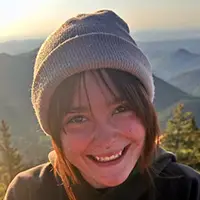
Madelyn Anderson
What is your major? Environmental studies and life science communication
Expected graduation: May 2025
What inspired your interest in the environment and/or community? I often find myself in awe of the living, breathing ecosystems we exist in. Ever since I was little I’ve been asking questions about the bugs I find or streams I swim in. Now that I’m older, I want to protect the wonders of biodiversity and share them with others.
What would you say (or do you say) to other students about CESP and the Nelson Institute? If you are seeking community, I highly recommend becoming involved with the Nelson Institute and specifically CESP. This slice of campus holds some of the warmest people, all passionate about creating a more welcoming and sustainable world for all.
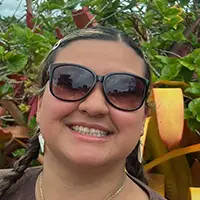
Amalia Aranda
What is your major? Communication arts, certificates in sustainability and digital cinema production
Expected graduation: May 2025
What inspired your interest in the environment and/or community? From a young age, I have always been interested in STEM, specifically meteorology. Going into my first year, I wanted to pursue a career in atmospheric and oceanic sciences and discovered on the first day that I wanted to change the trajectory of my major. I had always loved learning about the environment and being immersed in nature. I grew up around many local parks and would love to do outdoor activities such as camping, swimming, biking, etc. I had taken an environmental film class that first semester, which changed my mindset on how I view film and the environment. From then on, I have had a passion for both and want to be able to engage with communities through film and media.
What would you say to other students who ask about CESP or the Nelson Institute? I would say that CESP is a safe and supportive community and outlet to share your experiences and thoughts on community and the environment. It’s another way to connect with people and make new friends late into your years at UW.
Something few people know about you: I really dislike reading, except for the books in CESP.
Anything else? I have two cats back home in Milwaukee and I love to bike on my free time around Madison.
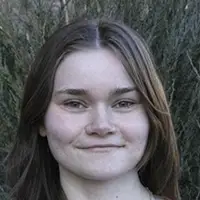
Sarah Ashland
What is your major? Sociology
Expected graduation: May 2025
What inspired your interest in the environment and/or community? What inspired my love for the environment was a love for animals. I started volunteering at a farm animal sanctuary in high school and grew an immense passion for animal rights and advocacy. I took this passion and applied it more broadly to the environment. I am now passionate about environmental justice and environmental health disparities.
Something few people know about you: I love to cook! I live in a very small apartment and my kitchen is the size of a closet but I don’t let that stop me from cooking as many different things as I can.

London Bates
What is your major? Community and environmental sociology with a certificate in sustainability
Expected graduation: December 2024
What inspired your interest in the environment and/or community? After I took Envir St 339 – Environmental Conservation during the fall of 2021, I learned more about environmental conservation approaches, biodiversity, environmental justice, etc. From that point on, my passion for the environment, resource conservation and social and environmental justice grew.
What would you say to other students who ask about CESP or the Nelson Institute? The Community Environmental Scholars Program (CESP) gives students space to create community inside of the classroom and engage with communities outside of the classroom. You are exposed to a whole new aspect of learning by challenging students to engage with new concepts and how these concepts may connect to the world. CESP and the Nelson Institute offer a more insightful and inclusive form of education that others may not. CESP offers so many opportunities for students to take on leadership roles and apply newly acquired skills to real-world situations.
Something few people know about you: When I was young, I wanted to be both a teacher and an engineer. I did not know which one I wanted to be, I just knew I wanted to do something related to STEM and change. I am currently a STEM and sociology major, I plan to later pursue another science degree and I would not mind pursuing academia as I am still passionate about education as well.
Anything else? I am passionate about science and how it plays a part in shaping the world around us. Growing up in the inner city, I can attest to the necessity of a strategy for sustainability and equality initiatives. This being a result of food insecurity, limited resources, lack of advocacy, and the effects of pollution on public health. I want to have a hand in the examination and completion of natural processes, I also want to advocate for communities that have limited access to the resources that are linked to these processes. Each learning experience in CESP has opened my eyes to how strong our connection is to the world around us.

Ian Beilfuss
What is your major? Environmental science and cartography/GIS with minors in environmental studies and science communication
Expected graduation: May 2026
What inspired your interest in the environment and/or community? I grew up spending a lot of time outdoors, camping and hiking with friends and family. However, I didn’t truly start to care about the environment until I took a family trip to Grand Teton National Park towards the end of high school. The Tetons gave me a love for backpacking and spurred me to want to do more to care for our vulnerable ecosystems.
After high school, I took a year off before college to work for Northwest Youth Corps doing trail maintenance and invasive species removal on Forest Service land in Oregon and Idaho. Working outside daily on environmental projects I cared about amplified my love of nature and ultimately convinced me to change my major from electrical engineering to environmental science.
In college, I became interested in understanding how prescribed burning in California and other western states could improve the health of forests and minimize the frequency and severity of wildfires and damage to homes and businesses. Through this interest, I discovered how important it is to include Indigenous voices in our land management and environmental stewardship. I hope that bringing more people from all communities into the outdoors will help raise awareness and support for the ecosystems that have been so exploited by the global economic machine.
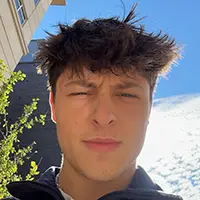
Travis Beyer
What is your major? Finance, risk management and insurance, and environmental studies certificate
Expected graduation: May 2025
What inspired your interest in the environment and/or community? My interest in the environment and community stems from a deep appreciation for the interconnectedness between human well-being and the natural world. Growing up, I always had a connection to the outdoors, whether it was through family activities like hiking, fishing, or simply spending time in nature. As I grew older and began to understand the broader environmental challenges we face — such as climate change, habitat destruction, and pollution — it became clear that individual actions alone wouldn’t be enough to create meaningful change. I started seeing the crucial role that communities play in shaping environmental outcomes, from local initiatives to larger policy advocacy.
This realization sparked a desire to combine my business skills with environmental stewardship. I believe that businesses, when run sustainably, can be powerful forces for good. They have the potential to drive innovation, support local economies, and contribute to environmental solutions. By merging these two passions, I aim to create pathways where economic growth and environmental responsibility go hand in hand. This is why I am particularly interested in becoming a more active community member. I want to use my skills and expertise to help bridge the gap between economic development and environmental sustainability, fostering a future where businesses thrive without compromising the health of our planet.
What would you say to other students about CESP and the Nelson Institute? To other students, I would say that joining CESP (Community Environmental Scholars Program) and being a part of the Nelson Institute has been one of the most transformative experiences of my academic journey. CESP has given me the opportunity to grow not only as a student but also as a community member and environmental advocate. It has broadened my perspective on the many ways that individuals and organizations can contribute to sustainability and environmental justice.
The program fosters a unique combination of academic learning, hands-on experience, and community engagement. You’re not just learning about environmental issues in the classroom — you’re actively working with community partners to address real-world challenges. This approach has allowed me to become more well-rounded, both in terms of knowledge and practical skills. The sense of purpose and connection that comes from contributing to meaningful projects has been incredibly rewarding, and it has strengthened my commitment to making a positive impact on the world around me.
For anyone looking to make a difference and gain a deeper understanding of the intersection between environmental issues and community needs, I highly recommend becoming involved with CESP and the Nelson Institute. It’s an opportunity to collaborate with passionate, like-minded individuals and develop the skills and connections needed to drive change.
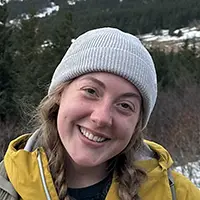
Molly Cohen
What is your major? Community and environmental sociology and education studies
Expected graduation: May 2025
What inspired your interest in the environment and/or community? My interests in the intersection of environment and community can be accredited to where I grew up in southern Vermont. I am passionate about food sovereignty, increasing access to outdoor spaces, and rural sociology as a whole.
What would you say to other students who ask about CESP or the Nelson Institute? CESP has been an incredible asset to my academic journey at UW, and I am thankful for the opportunity to meet with like-minded students from all different backgrounds. Through CESP, I felt equipped with the tools to study food systems in rural Icelandic communities in the spring of 2024, and I am looking forward to more opportunities in the future!
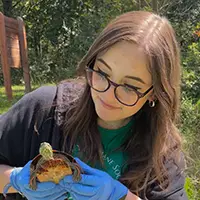
Lynnea Colbert
What are your majors? Conservation biology and zoology, with a certificate in environmental studies
Expected graduation: May 2025
What inspired your interest in the environment and/or community? While my coursework in college thus far has played a large role in inspiring my interests, I have also grown up with lots of love for nature and the outdoors, and have always known the importance of treating the natural world around me with respect and kindness. The environment is more than just a place we inhabit, and is to be enjoyed and taken care of for the many generations to come.
As I find myself engaging with both the environment and the communities I belong to, I remind myself that, “We are showered every day with gifts, but they are not meant for us to keep. Their life is in their movement, the inhale and exhale of our shared breath. Our work and our joy is to pass along the gift and to trust that what we put out into the universe will always come back.” — Robin Wall Kimmerer
What would you say to other students who ask about CESP or the Nelson Institute? I started my college journey pretty clueless, and I was “undeclared” in terms of majors up until junior year. I eventually discovered conservation biology, which seemed to perfectly blend my interests in the biological sciences with environmental conservation and ecological disciplines, and from there found zoology, which exposed me to research opportunities and furthered my scientific knowledge.
Environmental studies was the perfect addition to the two and introduced me to classes that would ultimately inform me about the existing disparities within and connections between both community and environment. I joined CESP very shortly after declaring my majors, and it has been such a rewarding experience.
I would tell anyone interested in CESP or the Nelson Institute that regardless of your background or college goals, CESP is such an incredible and rewarding community to be a part of. This welcoming learning environment holds so many diverse perspectives and is a program that is focused on inviting students to reflect and grow while centering on community engagement and the world around us.
Something few people know about you: I am a first-generation college student!
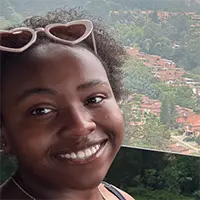
Ari Collins
What is your major? Political science and environmental studies
Expected graduation: May 2025
What inspired your interest in the environment and/or community? Since high school, I’ve always been very interested in the environment as climate change became more of a topic in and out of classrooms. The more I learned about environmental issues, the more I tried to immerse myself in atmospheres of like minded people working towards environmental changes. I started joining clubs and taking more environmental focused courses throughout the rest of my time in high school and decided to major in environmental studies.
Since then, my knowledge about the environment has only grown and I’ve started to try to find ways to solve or be a part of social and environmental change. Starting with my own community and expanding my outreach is my ultimate goal, possibly integrating my knowledge of political science and environmental studies to reach my goals.
What would you say to other students who ask about CESP or the Nelson Institute? To prospective Nelson Institute students, I’d highly recommend joining CESP as soon as possible! It’s been one of the most (if not most) welcoming communities I’ve ever been a part of. Being surrounded by like minded individuals with similar goals and values has been very uplifting and rewarding and I’d recommend all to join! Especially if you’re looking for ways to get more involved in the community and environmental justice issues.
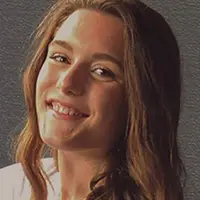
Santina Cullison
What is your major? Plant pathology major with a certificate in sustainability
Expected graduation: May 2025
What inspired your interest in the environment and/or community? I came to the UW knowing that I wanted to end up working in the field of sustainability in some way. I remember hearing about the impacts of climate change when I was little and it was really scary despite me not fully being able to understand the situation at that age. I wanted to be a part of the solution in some way because I didn’t like the idea of having so much climate anxiety and not doing anything. I didn’t fully understand my place in the solution, I knew I was fascinated with plants and wanted to work with them somehow.
In the fall of my freshman year at the UW, I took an environmental economics course to fill a credit requirement and didn’t think much of it. We talked a lot about the different sectors of environmentalism, and heavily discussed the agricultural practices of our world. Something just clicked inside of me during that and I knew that agricultural sustainability was where I wanted to focus my efforts and skills.
The CESP community has been so amazing to be a part of. My major is very small and I haven’t met many people who share my major, so having a community like CESP where there is some kind of commonality has been so wonderful. I would tell newer CESP students to embrace that community because it makes the course so much more enjoyable.
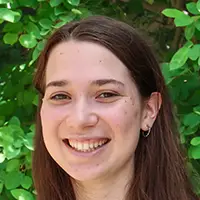
Jordyn Czyzewski
What is your major? Landscape and urban studies, people-environment geography, and environmental studies with a certificate in the integrative design of built and natural environments
Expected graduation: May 2026
What inspired your interest in the environment and/or community? Milwaukee’s Mitchell Park Horticultural Conservatory, or “the Domes,” was where I first found wonder in exploring the natural world through learning about the complexities of ecosystems. In high school, I took an environmental systems and societies class that opened my eyes to the intertwined relationship between people and the environment.
As I grew older, I started to recognize the deeper environmental challenges that affected my family — like living next to a busy freeway and seeing both of my siblings struggle with asthma, heat waves closing our schools due to a lack of air conditioning, and learning about asbestos in my mom’s school and black mold in my great-grandma’s basement. These experiences made me realize how much our physical environment impacts our health and well-being.
Growing up in Milwaukee, I also witnessed how environmental injustices and environmental racism deeply affected people’s quality of life. This fueled my passion for advocating for equitable, place-based solutions. At UW-Madison, working on a co-design project with a local school as part of a mindfulness and restorative environments course furthered my understanding of how essential it is to create spaces that reflect the needs of the people who use them through meaningful partnerships.
Ultimately, I want to combine design, advocacy, and community engagement to address environmental challenges through urban planning initiatives. By implementing place- and people-based solutions, I hope to contribute to the well-being of both humans and the environment, by building connections between people, communities, and the places they inhabit.
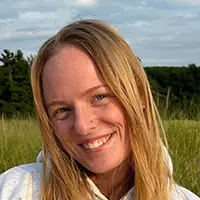
Lydia Darga
What is your major? Legal studies with certificates in environmental studies, public policy, and political science
Expected graduation: May 2026
What inspired your interest in the environment and/or community? I grew up in a very outdoors-oriented family. We often were camping, hiking, biking, and just exploring outside in the greater Madison area. As I got older, this enjoyment and exploration of the outdoors never diminished and instead grew even bigger. I often spend my free time outdoors, whether that’s reading in my hammock, taking a run on Lakeshore Path, going for a walk in the UW Arboretum, or kayaking on Lake Mendota.
Coming to UW–Madison, I was able to take my passion and enjoyment of the outdoors and combine it with my education. While I always knew I wanted to pursue a career in law and major in legal studies, it wasn’t until I started taking courses at UW that I began to think about the environment and how that intersects with careers in law, public policy, and government.
It started with taking Forest & Wildlife Ecology 110 — Living with Wildlife – Animals, Habitats, and Human Interactions my freshman year just to fulfill my biological science requirement, where I realized that maybe I want to continue to learn about the environment and how humans interact with it, in addition to the law. I have been fortunate enough to continue with courses on climate change governance, law and climate justice, water rights and governance, and now CESP for the next few semesters!

Julia Fechner
What is your major? Community and environmental sociology, landscape and urban studies, with certificates in sustainability, public policy, science communication and integrative design
Expected graduation: May 2026
What inspired your interest in the environment and/or community? Growing up in Wisconsin, I went to an environmentally focused charter elementary school, which struck my early love for nature. I have always loved the outdoors and seeing the Wisconsin winters that I grew up loving changing, led me through my educational interests of climate change mitigation and sustainable development.
In high school I was heavily involved in Club Green, an environmentally focused, student-led organization. I am now outreach director for The People’s Farm and a student intern with the Office of Sustainability. All of these experiences have deepened my love for our planet and I hope to pursue a career in environmental law to help make a difference in our future.
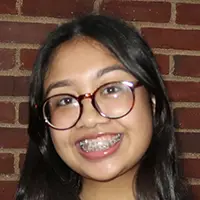
Hermary Gonzales
What is your major? Wildlife ecology with an environmental studies certificate
Expected graduation: December 2024
What inspired your interest in the environment and/or community? My passion for the environment and biodiversity was sparked by my upbringing in Hawai’i. Throughout school, I learned about the endemic species that Hawai’i is home to but also the invasive species that are impacting the ecosystem. I also learned how much culture and biodiversity are intertwined after learning about how much folklore in both Hawaiian culture and Filipino culture, my background, is connected to local species. My goal is to conduct conservation work and research that aid the viability of endemic populations while also emphasizing the importance of culture and community.
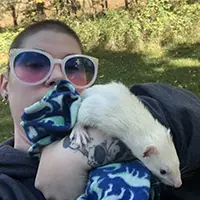
Mandy Grunewald
What is your major? Environmental studies, Asian language and culture, and Chinese language
Expected graduation: Fall 2025
What inspired your interest in the environment and/or community? When I was little, my mom and I lived in the forests across Montana for six months and the love of nature never left me. Seeing moose, mountain lions, and wolves first thing when you wake up is an amazing, and sometimes terrifying experience. I wanted to keep that experience alive by continuing to learn about the environment and sustainable living so that I could hopefully live off the land again later in life.
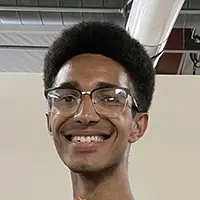
Devin Guthrie
What is your major? Environmental science, with certificates in environmental studies and Indigenous peoples studies
Expected graduation: May 2026
What inspired your interest in the environment and/or community? I grew up in Milwaukee, where despite having an urban experience, my parents’ love of the environment spread to me. My extended families live in rural areas, one owning a farm, allowing me to interact with nature in a variety of ways. In the city, I took advantage of the outdoor opportunities, further shaping who I am and inspiring the love of nature that I have today.
I am interested in the intersection between culture, people, and the environment, observing the ways they influence each other. Ecology, conservation biology, entomology, and almost every other field within the environment interest me, giving me more ideas on how to best connect us to nature. Connecting the variety of intersections together feels like slowly solving a puzzle, all of the pieces coming together to create a whole image. There are so many possibilities for how we can mold ourselves with the environment because everything is connected to everything else!
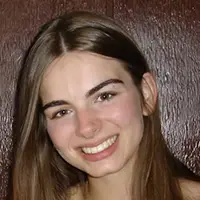
Jalynn Horacek
What is your major? Environmental engineering
Expected graduation: May 2026
What inspired your interest in the environment and/or community? My interest in the environment stems from my upbringing. I am from a very rural area and have always appreciated the fact that I got to grow up in nature. I loved swimming in the local lakes and catching fireflies in the summer. You’ll never see brighter stars than in my backyard.
However, even in the middle of nowhere, I still heard news about how our local farmers were polluting our rivers and the controversy over wolf hunts. I never realized how threatened our ecosystems were and how delicate the balance of nature is. That’s why I went into environmental engineering: to solve problems and maintain the balance of nature as best we can.
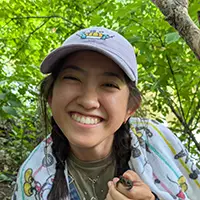
Aya Ishikuri
What is your major? Biology major with a certificate in environmental studies
Expected graduation: May 2025
What inspired your interest in the environment and/or community? Growing up my family would take me on road trips across the U.S. to different national parks. My love for all things nature and conservation stem from the experiences I have going to these parks and immersing myself in the beauty of all things wild. However as I’ve gotten older, I’ve become increasingly conscious of how many other people have not had the privilege of viewing nature in the same way as I do, and the way others don’t hold the same admiration for nature like I have. My passion for the environment and its protection extends to wanting to bring awareness of wildlife conservation to communities that may not have the education or the resources about this important aspect of the environment that affects all of us.
What would you say to other students who ask about CESP or the Nelson Institute? Don’t be afraid to voice your thoughts and opinions as CESP is meant to be a safe space for discussions and open-mindedness. If you are looking for a community to meet new people who believe in the importance of the environment and engaging the community, CESP is the best place I know! It is filled with bright, passionate, welcoming people who only wish for the best world possible!
Something few people know about you: Few people know that I love arts and crafting! Some things I have tried and loved are crocheting, knitting, embroidery, jewelry making, painting, and needle felting!
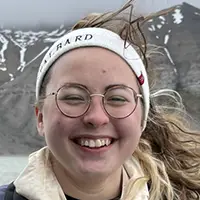
Emily Johnson
What is your major? History
Expected graduation: May 2025
What inspired your interest in the environment and/or community? I have always been an avid fan of the environment from going on camping trips at Lake Du Bay, exploring Wisconsin wildlife at the DC Everest School Forest, to learning about ancient life at museums. It wasn’t until the eighth grade that I started to invest more time in figuring out what climate change was. When I realized what was happening, I was furious that world leaders were not taking it seriously. Because of that, I’ve devoted my time to understanding the issue and implementing solutions. When I graduate, I want to educate people in the Midwest about sustainability and how they can make a difference.
What would you say to other students who ask about CESP or the Nelson Institute? The Nelson Institute has really changed my understanding of sustainability! I have become more aware of how the effort is a tool for both environmental improvement and social justice! It’s because of this that I get so excited about sustainability efforts!
Something few people know about you: I volunteer as Snow White for kids with medical vulnerabilities!
Anything else? I made a documentary in my senior year about climate change and the Midwest! Our Heartland: Climate Change and the Midwest
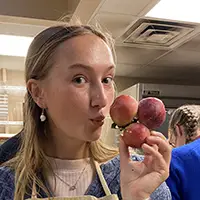
Anna Jurena
What is your major? Environmental studies and French
Expected graduation: May 2025
What inspired your interest in the environment and/or community? Once I started to learn more about the environment from a social perspective, I became very passionate about equal access to healthy food and outdoor spaces for all people. Personally, I’ve noticed a big difference in my life since coming to college when I’m able to cook meals for myself with fresh ingredients and enjoy outdoor spaces more regularly. Accessibility to these are essential for a thriving community for physical and mental well-being, yet it’s often limited in marginalized areas. In the future, I’m hoping to work with an organization that focuses on bridging these gaps, ensuring that all individuals have the opportunity to connect with the environment and lead healthier lives. CESP is a great place to share these interests with like-minded people!
What would you say to other students about CESP and the Nelson Institute? I would recommend CESP to anyone and feel very grateful for this program. It really helped me reflect on my intentions in the work that I do and how to make my engagement more meaningful. I’ve also gotten to meet such a great group of like-minded people!
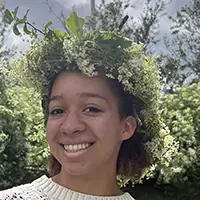
Siena Keys
What is your major? Neurobiology and honors psychology with a certificate in sustainability
Expected graduation: May 2026
What inspired your interest in the environment and/or community? I grew up right next to Milwaukee, with lots of my family from there. I’ve spent lots of time in the city and I’ve seen how sometimes disconnected the city can feel from nature. I didn’t grow up in an outdoorsy family but cherished any chance I could to be out in nature. Since entering college, I have started more sustainable practices and grown my love of nature. After taking a community and environmental sociology class freshman year, I learned more about how the environment where one lives plays a major role in our lives. It frustrates me that there’s so much knowledge on how to better our communities that isn’t utilized in making our cities better. I believe that by bringing our communities closer to nature, we can also bring them closer together and improve people’s livelihoods.
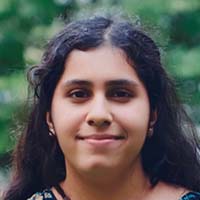
Tanvi Kulkarni
What are your majors? Data science and environmental studies
Expected graduation: May 2025
What inspired your interest in the environment and/or community? Growing up, I was fascinated by wildlife, and I often spent my free time visiting zoos or reading books about eclectic species across the animal kingdom. As I gradually became aware of environmental issues such as deforestation and biodiversity loss, I realized that I wanted to do everything I could to help.
An environmental science class I took in high school and several of the courses I have taken thus far in college have opened my eyes to the intersectional nature of our environmental crisis, from environmental racism to the unequal consumption and destruction of natural resources around the world. While these problems may seem daunting to take on, change can start locally, and I have come to understand the pivotal role that communities and grassroots action play in helping our environment.
What would you say to other students who ask about CESP or the Nelson Institute? I think CESP is a great way to meet like-minded students who care about connecting their passion for the environment with a commitment to community.
Something few people know about you: I love visiting natural history museums!
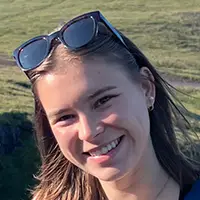
Claire Lesnjak
What is your major? Chemical engineering with certificates in engineering for energy sustainability and environmental studies
Expected graduation: May/summer 2026
What inspired your interest in the environment and/or community? I grew up frequently traveling to our family cabin and camping in northern Wisconsin. I was constantly outside observing animals, insects, and plants. I would even take a notebook with me to record these observations, just ask my mom!
In elementary school, I skipped class to plant trees. To be more specific, I was planting the little maple helicopter seeds across the school yard and playground. Yes, I got in trouble for it and had to stop. In high school I was first introduced to the idea of intersectionality: that many of the challenges we face as a society are interconnected. For example, creating green spaces in disadvantaged neighborhoods has been shown to reduce rates of violence.
While I no longer skip class to plant trees, my motivation to protect the environment and combat climate change has not gone away. My goal is to use the skills I’ve learned from my engineering coursework to reduce environmental impact in a way that also benefits local communities.
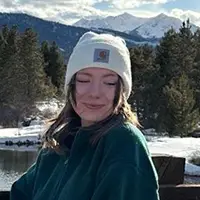
Emma MacLaughlin-Barck
What is your major? Textiles and fashion design and Spanish, with a sustainability certificate
Expected graduation: May 2026
What inspired your interest in the environment and/or community? My parents have always been very involved in our local community, attending and contributing to fundraising events, as well as volunteering, which has inspired me to find ways to engage with my own community. My sophomore year of high school, I was working on a research paper based on sustainable fashion, and I have been interested in combing sustainability, fashion, and community engagement ever since!
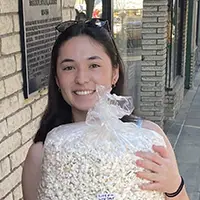
Natalie Maruyama
What is your major? Risk management and insurance
Expected graduation: December 2024
What inspired your interest in the environment and/or community? My grandma had the biggest garden, and it sparked my love for nature. I have always appreciated the outdoors, especially growing up in Colorado. However, my interest in environmentalism grew given the increased frequency of wildfires in my home state and hearing about catastrophes in other parts of the world.
What would you say to other students who ask about CESP or the Nelson Institute? I would say that the CESP is a great space to reflect on how we engage with communities and the environment. It helps you set intentions, ensure that your engagement is meaningful, and gives you a space to read meaningful stories. You have the opportunity to connect with students from differing backgrounds and majors which can broaden your perspective on important topics. I have met so many people that I wouldn’t have without CESP. It’s really cool to learn about the different ways you can positively influence community or environments no matter what your career interests may be. You also get to participate in a service project!
Something few people know about you: I’m training for a half-marathon!
Anything else? I have always wanted to grow my own food and have a giant garden!
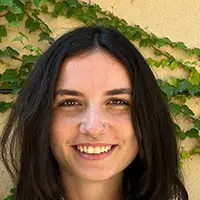
Mae Moen
What is your major? Environmental science and global health
Expected graduation: May 2026
What inspired your interest in the environment and/or community? I have always had an interest in the environment since I was young and was always outside. My passion for the environment followed me through school as I worked to better the sustainability in my hometown. Now in college, I have pursued my passion for helping the environment by making sustainability more accessible and easier for my community. In the future, I hope to make an impactful change to better the planet and the people.
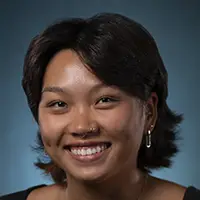
Melina Nguyen
What are your majors? Political science and people-environment geography
Expected graduation: May 2025
What inspired your interest in the environment and/or community? I was very lucky to have a family that spent a lot of time in the outdoors and this fostered my interest in environmentalism from an early age. I grew up in Madison surrounded by our lakes and parks and have enjoyed camping, paddleboarding, and hiking for years. I started getting more interested in environmental studies when I began learning about how the effects of climate change disproportionately impact BIPOC communities. This linkage between my love for the outdoors and my passion for equity led me to learn more about environmental justice, and I’m especially interested in developing equitable and sustainable food systems and making environmentalism accessible to a wider audience.
What would you say to other students who ask about CESP or the Nelson Institute? CESP is a space to meet students and faculty in the environmental space in a low-stakes, casual, learning environment. I’ve found a lot of value in CESP because it is one of the only spaces on campus where I get to return to the same instructors and classmates and we get to build relationships for longer than the span of a single semester. I’ve received a deeper environmental education from CESP and the discussions that we have in our seminar.
Something few people know about you: I’m a first-generation college student!
Anything else? I’ve spent my last three summers farming at The People’s Farm’s plots in the Eagle Heights Community Gardens. I love eating seasonal produce!
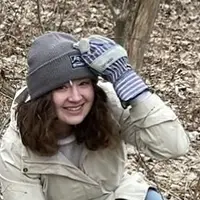
Chela Gloria Quiñones
What is your major? Landscape and urban studies
Expected graduation: December 2025
What inspired your interest in the environment and/or community? I believe my appreciation and fascination for the environment as well as community began very early on in life. Growing up in southeastern Wisconsin, some of my fondest memories growing up were of going on walks at nature hill, taking field trips to Lapham Peak and Horicon Marsh, swimming in Lac la Belle, playing outdoors, going to the farmers market and so much more. My love and respect for the natural world around me was fostered early on in life without me even knowing because it was just a way of life in my family and in the community.
I did not know I wanted to have an environmentally related career at first because of this, but unfortunately as I got older I began to see the effects of climate change here in Wisconsin. This led me to pursue the environmental studies major here at UW–Madison before I even knew what else I wanted to major in. In my classes I’ve learned how creating livable, just, and environmentally conscious communities goes hand in hand with conserving healthy environments and ecosystems. These two approaches are key to combating the climate crisis and achieving a brighter future.
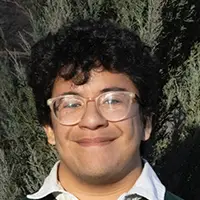
Angel Salas
What is your major? Mechanical engineering
Expected graduation: December 2025
What inspired your interest in the environment and/or community? As a child, I learned about the damage humans have done to our one home in this universe. I also learned about the ways we can evade the imminent downfall of our society and of our environment. As I got older and started to learn more about environmentalism and how it is much deeper than what an individual can do to protect the environment. Like a call to action, I made it a passion and a core value of mine to really teach others of the importance of the environment around us and to be proactive in any sort of way.
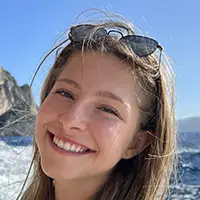
Emma Seaberg
What is your major? Global health and environmental studies
Expected graduation: May 2025
What inspired your interest in the environment and/or community? Being from Colorado, I have spent a lot of time in the mountains hiking, skiing, snowboarding, and camping, and I have developed a deep appreciation for the natural world. I also love to travel and have had the opportunity to see many amazing places and environments, contributing to my admiration for nature.
I was invited to work on a climate action plan for the school during my freshman year at UW–Madison. For this project, my group and I researched sustainability and climate action initiatives and policies that could be implemented throughout UW–Madison. This project highlighted how important multiple perspectives, a systems approach, and community-based work are to address issues surrounding climate change and the environment.
This project combined with my passion for sustainability and societal growth has both inspired my interest in the environment and community work, and I hope to pursue a career involving these fields.
What would you say to other students who ask about CESP or the Nelson Institute? Applying for and joining CESP has been one of my best decisions during college. I have found a group of people I may have never met who share the same passion for the environment and improving our community. It has been a great way to connect with the Madison community and my peers.
Something few people know about you: I am on an intramural pickleball team!
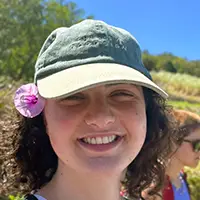
Anna Silverman
What is your major? Environmental studies and Spanish with a certificate in sustainability
Expected graduation: May 2025
What inspired your interest in the environment and/or community? I joined the environmental movement in sixth grade when I walked into my favorite teacher’s classroom at lunch on a Tuesday and found myself among the members of the Eco-Action Club. I saw students bent over lab tables, diligently populating posters with giant earths and bubble letters promoting our middle school’s latest Go Green to School event.
Experiencing solution-oriented involvement during my first encounter with environmentalism enhanced my capability to lead and make a difference in this movement. Realizing my potential as a young activist has been instrumental in motivating me to keep learning, growing, and ardently striving for greater awareness and education about climate change that will lead to stricter policies and protections. Learning about the social justice issues layered on top of the climate crisis has further solidified my mission to work toward a sustainable and equitable future for all.
What would you say to other students who ask about CESP or the Nelson Institute? CESP has provided me with amazing connections to people, job positions, and resources on campus that have helped me grow as a student, environmentalist, and person. I am so grateful to both this program and the Nelson Institute for helping me find my community.
Something few people know about you: On free days, I love going on long walks with my guitar on my back. I’ll find a secluded natural area and just sit down and play for a while. This connects me to the Earth and makes me feel at peace.
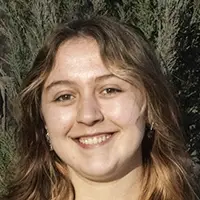
Taylor Tagliavia
What are your majors? Landscape and urban studies and geography (people and the environment), and environmental studies
Expected graduation: May 2025
What inspired your interest in the environment and/or community? My interest in serving the environment and community came from where I grew up. I grew up near the city of Milwaukee where I spent most of my childhood visiting the museums, sports games, restaurants, parks and more. When growing up I started to notice things the city is missing for those who reside there. Going to college I started to take note of the lack of social infrastructure, food deserts, and insufficient green spaces in the suburban area. This directed me towards the majors I am now pursuing and I hope to focus my work on involving the community resources and local environment of Milwaukee to ensure all citizens are taken care of.
What would you say to other students who ask about CESP or the Nelson Institute? CESP is a program that pushes you outside of your comfort zone. It exposes you to like-minded and extremely educated people that help you get involved and change your perspectives.
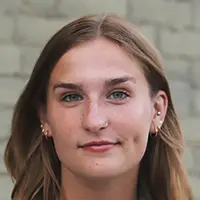
Emily Treffert
What is your major? Landscape and urban studies and Environmental Studies, with certificates in sustainability, integrative design for built and natural environments, and French
Expected graduation: May 2026
What inspired your interest in the environment and/or community? Ever since the AP environmental science class I took during my junior year of high school, I have felt a deep connection to the environment. I always loved spending time in nature throughout my childhood but this was the moment that I knew I wanted to dedicate my life to the environment and sustainability.
Coming of age during the peak of the climate crisis so far, I am terrified for how our world will look five, 10, 15, 50 years from now if we do not make some serious changes. My particular interest is in the realm of sustainable public transportation — a way that we can strengthen our communities while massively reducing greenhouse gas emissions.
One of my favorite aspects of sustainability is how broad it is. There is not one path to a more sustainable world – people of all different interests and passions can come together to address this issue. While I hope to specialize in public transportation, our food systems, housing, business practices, international relations, and more will all play a role in creating a more sustainable world. Global warming and the climate crisis are major concerns of mine but it is working with other students who value the environment and community that give me hope for the future.
What would you say to other students who ask about CESP or the Nelson Institute? CESP and other students within the Nelson Institute are the most passionate but kind students that I have met on this campus. Although we all have different perspectives and backgrounds, we are all working towards one common goal: a more sustainable future. CESP does not feel like any other class I have taken at UW — nothing feels forced or like a waste of anyone’s time. The work we are doing is genuinely valuable and applicable to all fields/aspects of life. CESP has been one of the most meaningful aspects of my college experience so far.
Something few people know about you: I spent 10 days in northern and central Malawi this summer, visiting half a dozen rural villages and schools with hundreds of learners (students) a piece to learn how the organization my father and I work for can better provide more schools with boreholes (wells) and running water. The foundation, WASH For Life, has already produced over thirty boreholes, strengthening the educational experience of over 15,000 Malawian children. During my time there, I was able to use what I had learned in my first semester of CESP to engage with the community members respectfully and responsibly.
Anything else? This summer, through my internship with LZ Management, a local property management company, I was able to coordinate the Sustainable Swap. This was an initiative where the tenants of Grand Central and X01 could exchange furniture they no longer needed and donate non-perishable food to The Keep Food Pantry and toiletries and cleaning supplies to Porchlight: Solutions to Homelessness. Over the course of three weeks, hundreds of items were exchanged and/or donated. Once again, I was able to think about the community engagement modules throughout this process for the best outcome and results.

Marvin Yang
What is your major? Human development and family studies with a certificate in Asian American studies
Expected graduation: May 2025
What inspired your interest in the environment and/or community? During my junior year of high school, I was in an APES class and that was what sparked my interest in the environment. Because environments differ in many locations, some things that I found interesting were the different factors that contribute to an environment and how it can be defined in many different ways. Ever since graduating high school, I’ve been enrolled in many environmental studies classes and I’ve been learning new things ever since.
Since I am majoring in human development and family studies, I want to conduct research on how the physical environment affects the behaviors as well as the development of humans. Learning about these different areas of the environment will allow me to broaden my knowledge on how these two contribute to one another.
What would you say to other students who ask about CESP or the Nelson Institute? CESP is a program that allows for students who are interested in environmental studies and sustainability and want to make an impact on the community.
Something few people know about you: I am an early bird and that I am able to wake up for classes without an alarm. An interesting fact about me is that I am a left-handed person and I take handwritten notes for all my classes.